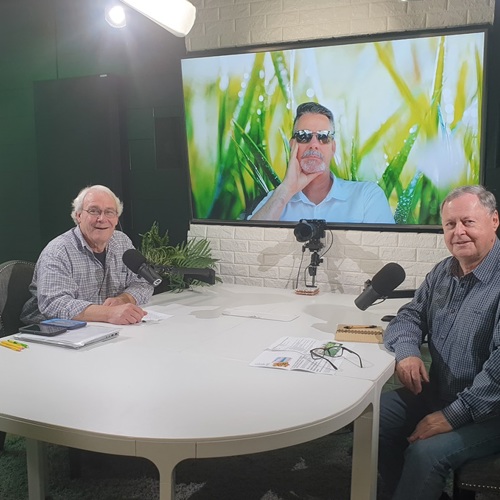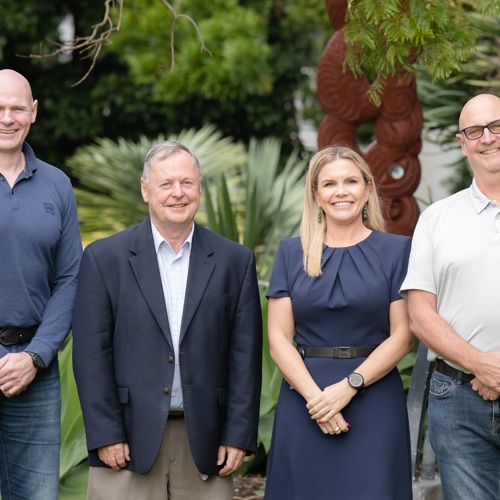California farmers lead the way in citrus production, providing about 60% of the citrus grown in the United States. Most of California’s citrus crop is eaten fresh, so the state actually provides over 80% of the nation’s fresh citrus (the rest goes to juices and other canned/jarred products.) California also grows over 90% of the nation’s lemons.
Like the other target crops featured in the first Platform10 set of field trials, citrus can suffer from a variety of disease and pests.
Citrus thrips can cause damaged rind tissue that moves outward from beneath fruit sepals and presents as a conspicuous ring of scarred tissue, commonly called a ‘ring scar’. Scarring may be severe enough to asymmetrically restrict fruit growth, causing a deformity in fruit shape.
Red scale are armored scales found in California and can cause damage to fruits and trees. Severe infestations can cause leaf yellowing and drop, dieback of twigs and limbs, and eventually tree death.
Platform10's planned Citrus field trials are focused on addressing these diseases.
The Citrus Field Trial Process
Grower Trial Implementation
Efficacy Data. Based on the mode of action (feeding deterrent, contact active, induced systemic resistance, mating disruption, etc.) data will be collected on pests and disease incidence, damage ratings, yield, product quality, effects on nontarget organisms including soil microbes** and the ability to avoid using one or more chemical product applications. Results may be published in academic journal (eg. Arthropod Management Tests (AMT) or Plant Disease Management Reports (PDMR)). Protocols will be designed in consultation with the applying company to assess how the product works when incorporated into a more integrated farming system.
**Microbial soil health data. Soil samples may be taken by a third party before and after testing and will be sent to a suitable laboratory to determine effects on the soil microbiome. Metrics typically assessed are microbial diversity and quantity, types of microorganisms (pathogens, nitrogen fixation, carbon sequestration, etc.
What is Citrus Thrips?
In each crop field trial, we look at one key disease impacting on growers. In this edition, it's Citrus Thrips.
All varieties of citrus can be affected; however, citrus thrips is of greatest economic importance to San Joaquin navel oranges, satsuma mandarins, and all types of desert citrus. On fruit, the citrus thrips punctures epidermal cells, leaving scabby, grayish or silver scars on the rind. Second-instar larvae do the most damage. They feed mainly at the calyx end under the sepals of young fruit and are larger than first instars. As the fruit grows, damaged rind tissue moves outward from beneath the sepals and presents as a conspicuous ring of scarred tissue, commonly called a ‘ring scar.'.
Thrips damage is higher on fruit located on the outside canopy where fruit is also susceptible to wind damage and sunburn.
The Platform10 Field Trial program has identified Citrus Thrips as a key pest to address.
The Growers
Platform10 are delighted to be working with outstanding Western Grower members.

Jared Plumlee
Jared Plumlee is the VP of Farming for Booth Ranches. He graduated from California State University Chico with a BS in Agricultural Business with emphasis on Business Management and is also a licensed Pest Control Advisor. He currently sits on the board of directors for California Citrus Mutual as well as works on the political action and legislatives committees at California Citrus Mutual.
Jared is a 3rd generation farmer in the Central Valley and has been a part of the Booth Ranches team since 2009. He now oversees all aspects of the farming operation. When he is not at work, he likes to spend time with his wife and two sons camping and recreating in locations without cell phone service.
What's Next
We will be posting updates on the progress of every field trial on this website. Timings will depend on crop cycles and we will only update when meaningful data is available.
If you believe you have a product that can help address the disease challenges identified above, please email platform10@salinas-summit.com
Our field trial programs are ongoing. Platform10 recognizes the importance of emerging science and research and is keen to support biopesticide companies looking to commercialize that science and research and take it to market.











